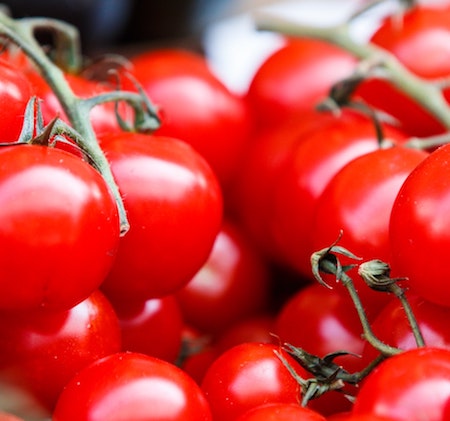June is Men’s Health Month, so what better way to celebrate than with a list of foods that will keep you (or the man in your life) healthy.

The goal of Men’s Health Month is to create awareness of health conditions that can be prevented if caught and treated early. These are health issues that affect both men and boys. And in observance of Men’s Health Month, Reader’s Digest published this article “13 Best Superfoods for Men” on superfoods that are particularly beneficial for men. Along with a handful of other dietitians, I offered up one of the foods I most recommend to my male clients. (Thanks to fellow RDN Amy Gorin for including me in her article!)
Why It Matters
According to the Men’s Health Network, men die an average of five years earlier than women. And, they are more affected by 9 out of the top 10 causes of death (including heart disease, cancer, stroke and diabetes). Interestingly, more baby boys are typically born than baby girls, but by age 35 the number flips and there are more women than men. And while men are at a greater risk for dying, they are less likely to see a doctor for their annual physicals.
While there are some risk factors we can’t change (e.g., age, heredity, ethnicity), what we eat can have a significant impact on our risk for certain diseases. So, what is one of my favorite foods for optimal men’s health? And, what are some other beneficial foods for men?

Foods for Men’s Health
- TOMATOES — One of the foods I most recommend for clients are cooked tomatoes. Yup, cooked tomatoes. Tomatoes provide folate, fiber, vitamin C, potassium, vitamin K and the antioxidant lycopene. Lycopene is the antioxidant responsible for the red color of tomatoes and the amount of lycopene in a tomato increases exponentially when it is cooked (versus a raw tomato). And, let me tell you, lycopene doesn’t play around… it is a super-powerful antioxidant that helps protect against heart disease and cancer. Studies show that men who eat at least two servings of lycopene-rich tomato sauce reduce their risk of developing prostate cancer than those who fewer than one serving a month. Plus, cooked tomatoes pair perfectly with whole grain or cauliflower pizza crust, pasta, fish, chicken, vegetables or even in that shrimp cocktail.
- ALMONDS — Like all nuts, almonds are rich in fiber, vitamin E, protein and heart-healthy unsaturated fats. Even just two ounces of almonds a day can provide a great benefit without resulting in significant body weight changes. According to a Penn State study, almonds can help reduce the risk of heart disease. Eat a serving of nuts at least 5-6 days each week.
- BROCCOLI — Broccoli and all of its cruciferous cousins (like cauliflower and cabbage) provide a heaping dose of antioxidants to help protect against cancer. And unique to broccoli and other crucifers, these veggies may help keep arterial walls thinner, which helps reduce the risk of stroke. Aim to include at least one serving every day, along with dark, leafy greens and other colorful veggies.
- SALMON — This fatty fish provides a boatload of heart-healthy omega-3 fatty acids. However, those omega-3s do more than protect the heart and reduce the risk of heart disease. These powerful polyunsaturated fatty acids also help boost brain health and help protect against age-related memory loss. Aim for at least 2-3 servings per week.
- BLUEBERRIES — These little gems provide an ample dose of dietary fiber and antioxidants. Fiber helps reduce the risk of heart disease, while antioxidants help protect against cancer and other oxidative damage. Aim to eat a 1/2-cup serving most days of the week.
- OATS — Don’t neglect whole grains like oats in favor of a fad diet. Whole grains, like oats, provide important B vitamins and cholesterol-reducing dietary fiber. The old-fashioned and steel cut oats provide bigger nutritional benefit than instant. So, make overnight oats several times a week for health benefits.
Check out my recipes for Pasta with Roasted Salmon, Tomatoes and Olives or Overnight Oats for easy and tasty ways to eat more of these foods.
This post first appeared on Smart Mouth Nutrition, LLC on June 21, 2019.






0 Comments